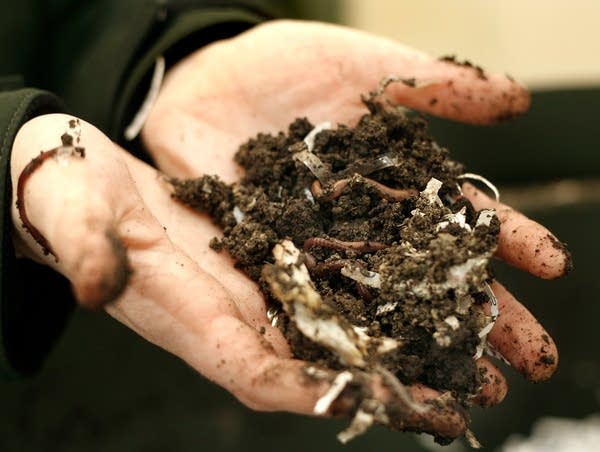New program to train students to green up their lives

Winona State University is offering a new program this spring to train a network of people how to green up their lives.
For eight weeks, students will combine online and hands-on learning in a program that's the first of its kind in Minnesota.
Sara Sturgis, education director at the Eagle Bluff Learning Center in Lanesboro, is ready for her students.
"When they come, they will do an energy audit on one of our buildings, Sturgis said. "They'll take a look at one of our buildings which is already undergoing and has plans for its own deep energy reduction and alternative building. We have demonstrations of solar voltaics and small wind. We have composting and recycling that happens here."
Create a More Connected Minnesota
MPR News is your trusted resource for the news you need. With your support, MPR News brings accessible, courageous journalism and authentic conversation to everyone - free of paywalls and barriers. Your gift makes a difference.
In mid-May, the students will come here to learn how small changes can make them more environmentally-friendly. Sturgis said she's ready to show them how simple it can be. She said one of the easiest ways to start is composting.
Outside of a greenhouse are three, 50-pound, green tumblers full of sawdust and food waste from the kitchen.
"So, what we do is we use sawdust and we put them in the tumblers and right now, in the deepest, hardest of winter, it's a little bit frozen," she said. "But for most of the winter, it extends our composting season. So really, from this month to the next, it's frozen, but it turns really quickly when the sun hits it. It'll shed a lot of water and this will immediately go into our garden."
There's also a worm composting bin where they recycle salad bar leftovers. Sturgis said all together, composting has reduced the center's food waste by 75 percent.

"If we can compost our amount, then hopefully the people that come in the energy resource class can see, 'OK, here's a scale that's really accomplishable,'" she said.
The learning center partnered with Winona State University and a few other environmental groups to create the Energy Resource Advisor certificate program.
Twenty-five students will take the pilot course this spring. At the end, they'll receive a certificate that declares them an Energy Resource Advisor. So far, students from as far as the Iron Range have signed up. If, the program is successful and interest grows, the university plans to share the curriculum with five other MnSCU schools around the state.
But before students get their hands dirty in a composting bin they'll have to sit in front of a computer. There's no classroom in this program, all the learning is digital.

Diane Dingfelder is the Winona State University continuing education director, and she'll also be a student in the first course.
She said after working on the program for about a year, she wants to see what it's like to learn about something via mouse clicks on the Internet. In all, students will complete 40 hours of the course online.
"This is my [Web] page, and each student will have their own page that they can adapt and add their own notes and handle their own checklists and so on," Dingfelder said.
Students will be quizzed at the end of each module but won't get a grade for the course. The lessons will be in a variety of formats.
"So there's a combination here, there's video and audio clips, there's some reading, there's discussions, there's chats, there's a variety of things here," she said.

Some of the online learning modules also include audio slideshow presentations.
"So the course is really designed to address different learning modalities," Dingfelder said. "Some of us do well with audio, some of us are visual people, and of course, there's the hands-on learning."
The program is sponsored by a $30,000 Innovation grant from the Minnesota State Colleges and Universities.
Dingfelder said she's excited and a little nervous about the whole thing. She said combining new media, education and environmental issues is still pretty new for universities, at least in Minnesota. She said it will succeed if students go back to their communities or workplace and make changes to their lives.
And she's confident the model has potential to grow across the state.
